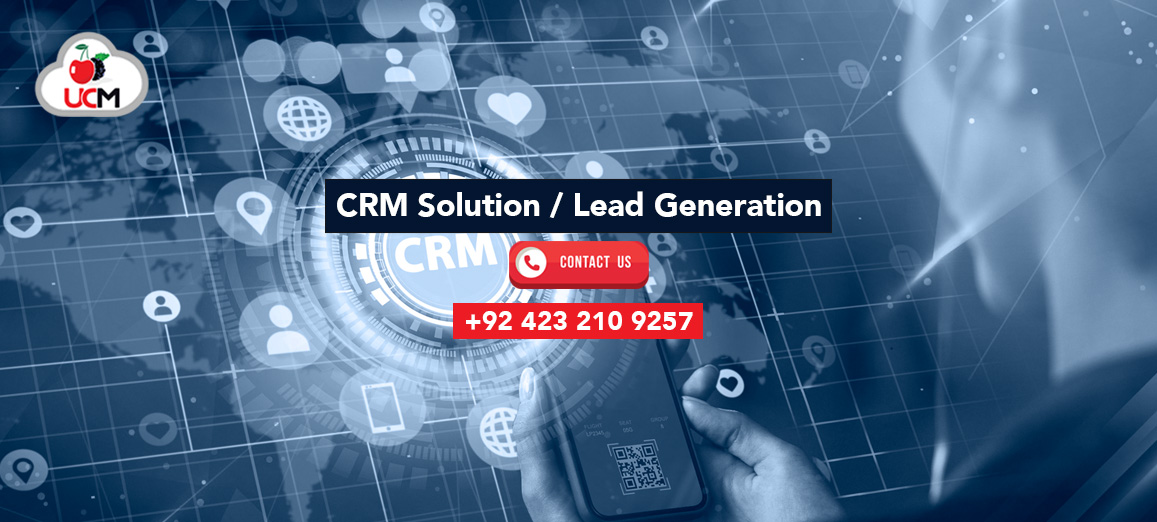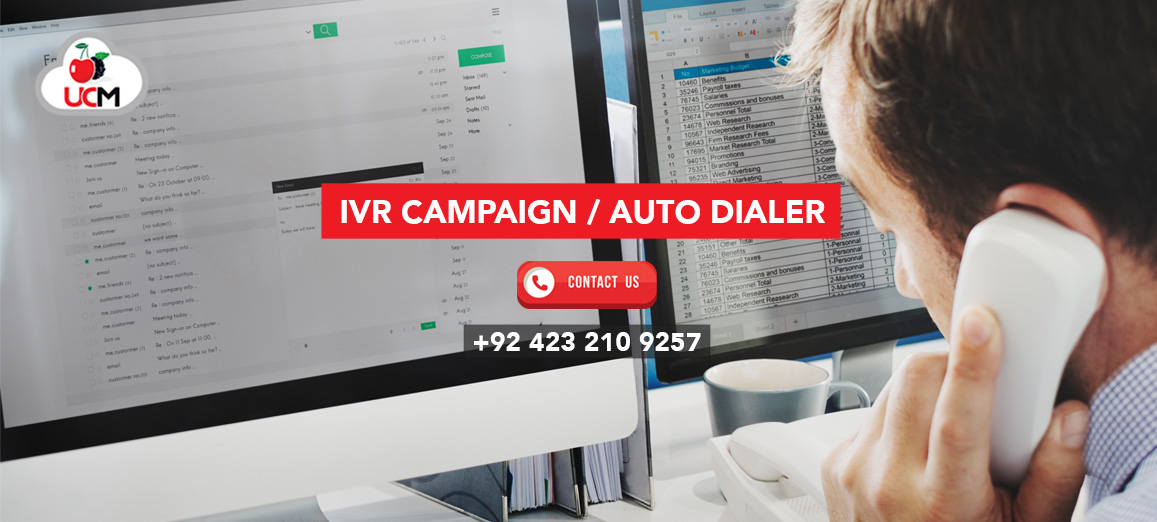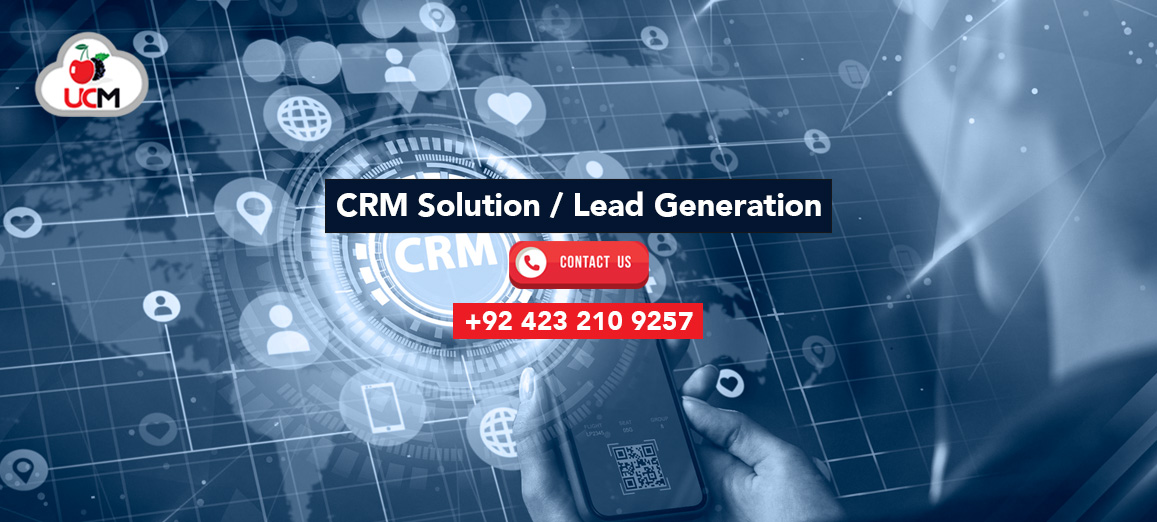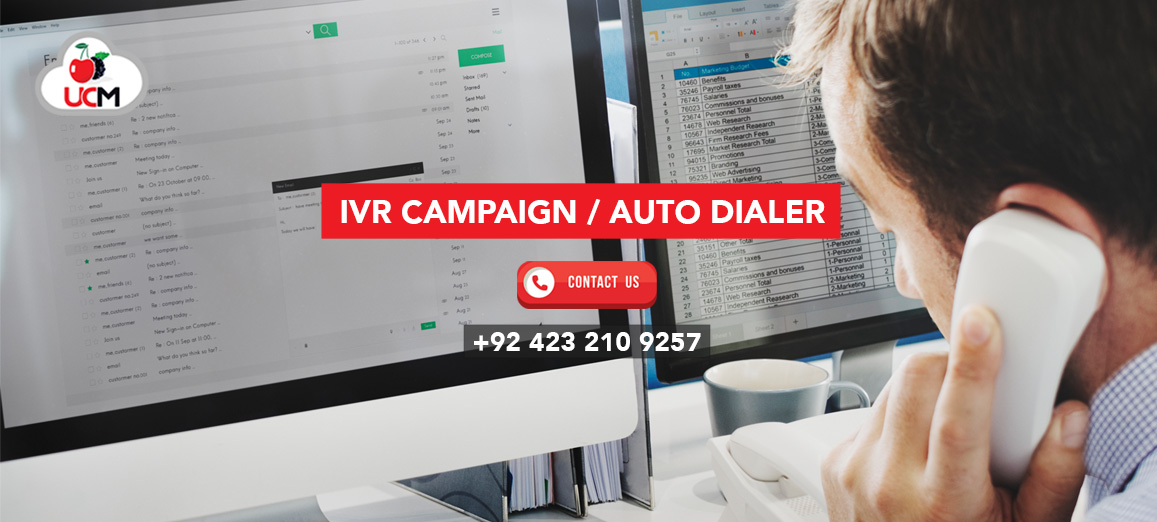What are Cloud-Based Call Center Solutions?
Why Consider Cloud-Based Call Center Solutions?
When it comes to the term call center, an image of an office filled with agents and operators wearing headsets and answering customer calls comes to mind. This typical model of call centers has been there almost for decades but the latest call centers are equipped with technology and can also be operated virtually. The technological revolution has empowered agents to work remotely while Cloud-Based Call Center Solutions have offered companies agility to adapt different communication channels and meet their customers’ growing expectations. Now, they can access their phone systems and data off-site anytime, anywhere through cloud-based technology. A cloud-based contact center with omnichannel support and a call center with voice support provides all the necessary tools required to run a call center through the internet. This availability reduces the need for on-premises infrastructure and hardware and offers much flexibility.
How Does Cloud-Based Call Centers Work?
The call centers that use cloud technology store their customer’s and business data on remote servers rather than hard drives. These services empower enterprises to benefit from custom solutions using application programming interfaces instead of software and hardware. Developers use APIs to design software applications so companies do not need to create and set up complex communication services. This means a company can start a cloud-based call center keeping only voice calls and later add new communication channels like video, social media, chat and messaging to achieve their business goals. Cloud-hosted call centers are also cost-effective and flexible solutions as companies don’t have to invest in installation or on-premises hardware. Automatic call distribution and IVR features route customers’ calls to the most available agents to ensure timely response and reduce wait times. Moreover, the integration of call center software with CRM promotes personalised interactions.
Benefits of a Cloud-Based Call Center
Switching from on-premises to off-site technology is only a beginning. Cloud-Based Call Center Solutions are more than offering virtual access to your customer and business data.
1. Enhance Customer Service Experience
The main aim of investing in call center services is to improve customer service quality. Many factors have negative impacts on your business’s bottom line. These include long wait times, impersonal interactions and limitless IVR menus. According to research, almost 45% of customers prefer to abandon a brand due to impersonal experience. However, companies can meet their customer’s demands and offer a top-notch service with cloud technology.
2. Enhance Global Access and Reliability
Business expansion across various countries gives you access to local numbers and enables you to offer local experience in any region of the world. Cloud call centers offer greater reliability than on-premises solutions as they keep your data secure and allow you to access this data anytime, anywhere. Moreover, your cloud-based phone system automatically routes calls to available agents to reduce the likelihood of inactivity. You can hardly find this level of reliability in on-premise contact centers.
3. Allow Routing & Tracking
In call centers that have to deal with a bulk volume of calls daily, connecting a call to the right agent is highly important. A cloud-based call center allows companies to connect their customers to the most relevant agents within no time. Attribute-based routing feature allowrouting a customer call to the most qualified agent after assessing its needs. Meanwhile, the system lifts the urgent calls in the queue which is called priority-based routing. In this way, companies can offer quality services and make their agents more productive.
Create A Scalable Cloud-Based Call Center with Cherry Berry UCM
Our Cloud-Based Call Center Solutions empower companies to provide positive customer service experience using a unified platform. Here, launching your cloud-based contact center is a matter of days while you can also scale up as your business needs evolve. You can also upgrade your existing call centers to offer personalised customer services and streamline operational efficiency. Looking forward to learning more about Cherry Berry UCM? Contact us now to grow your business.
What is a Virtual Call Center Business?
How Investing in Virtual Call Center Business is a Wise Decision?
Nowadays, the call center industry is rapidly evolving with changing customer expectations or behaviour and advancement in technology and social media. At present, quality customer service is an effective strategy to gain loyal and satisfied customers and drive business growth globally. According to the latest research, customers prefer to place calls rather than emails and chat to resolve their issues. Almost 30% of customers correspond with sales executives twice a month while 60% prefer to change their mode of communication to get better customer service. Keeping in view this evidence, companies are switching towards a Virtual Call Center Business. Many service providers offer intuitive and simplistic web interfaces, robust features and detailed reporting features that come with many benefits for clients. Let’s look deeply at what a virtual call center is and how it is beneficial for your business.
Why is a Virtual Call Center Important for Your Business?
When it comes to a virtual call center, this refers to a customer service center wherein sales representatives and agents work remotely from different geographical locations. As these call centers offer services remotely, therefore, there is no need to set up physical infrastructure. The call center agents interact with their customers using technology like chat, email, VoIP and social media. Virtual contact centers are getting popular today and becoming a norm due to their countless benefits for companies. For instance, they promote cost savings and flexibility and also give companies access to a larger talent pool. In these call centers, agents work from remote locations and communicate with customers using cloud-based technology. This reduces overhead costs and allows agents to work remotely from their locations with a flexible schedule. Moreover, agents can enhance customer service experience using chatbots and artificial intelligence technology.
Key Benefits of Having a Virtual Call Center For Your Business
1. Allow Significant Cost Savings
A Virtual Call Center Business works remotely which reduces the overhead costs related to maintaining a physical infrastructure. You neither have to pay rent nor have to spend money for hardware, utilities and other equipment. These call centers are particularly important for small businesses with limited budgets. These companies can save their cost by investing in a call center service that works remotely.
2. Promote Flexibility
The type of call centers that work remotely provides flexibility for both companies and their customers. The call center agents can work from any location in the world and manage communication with customers through the Internet. Moreover, companies can also scale their business operations up and down to meet the growing customer demands.
3. Access to Talent Pool
Companies can access professional and talented agents all around the globe to manage their call center operations. These agents from different geographical regions and right skills can offer high-quality customer service experience. Moreover, companies can hire agents from different time zones to provide round-the-clock call center services.
4. Improve Customer Service Experience
Virtual call centers have access to the latest technology and tools so they offer high-level customer service. For instance, they streamline workflow through artificial intelligence and automated call routing features. These features improve response time and your agents can offer a personalised customer experience.
5. Enhance Efficiency
These contact centers automate various repetitive tasks and enhance the efficiency of your agents. Your agents can access customer information in real-time which helps to minimise call managing time and allow them to manage bulk volume calls in a short time.
Final Thoughts
Indeed, investing in a virtual call center business is a worthy decision for companies looking to ensure a high-quality customer service experience. These flexible and cost-effective solutions allow them to provide efficient and personalised customer service experience to thrive well in today’s competitive environment. The combination of advanced technology and remote workforce also enhances efficiency. Contact Cherry Berry UCM right away to manage your call center operations effectively.
Manage Every Outbound Call Via Automated Outbound Calling
Automated Outbound Calling: Bring Your Sales to Another Level
Outbound calling is one of the important aspects of your business communication as today’s customers expect more from brands and businesses than before. In this highly competitive business landscape, Automated Outbound Calling has emerged as a necessary technology for businesses looking to reach out to prospects and customers effectively. These automated dialling solutions not only improve your agent’s efficiency but also allow them to manage more outbound calls efficiently and streamline outbound calling processes. Also called outbound dialling, this telephony technology automates all the process of initiating outbound calls and empower your agents to reach a large number of prospects easily. By using pre-configured scripts and workflows, they place and manage outbound calls and save your valuable time and resources. Let’s delve deep into these dialling solutions and their different types.
What are the Different Types of Outbound Dialers
You have a variety of options available to choose from different types of dialers for your business. Each of them is designed to meet certain demands and particular communication needs of a business.
1. Preview Dialer
This dialer, as its name suggests, gives your agent the opportunity to their customer data and history before initiating a call. By viewing customer profiles and previous records of interactions, they can prepare themselves to manage complex sales situations. They can also keep their customers engaged with interactive voice response technology.
2. Predictive Dialers
These dialers maximise your sales team’s productivity as they can automatically dial multiple numbers at once. Predictive dialers can predict the agent’s availability so they place calls on when agents become available to reduce their idle time.
3. Power Dialers
They keep a balance between automated and manual dialling. These dialers automatically add numbers in a queue and dial them in sequence to avoid repetitive tasks. Like a preview dialer, it can place one call at a time.
4. Auto Dialer
These fully automated dialers can place a large number of calls in a short time. Generally, call centers use these dialers for surveys, appointment reminders or sending bulk notifications.
5. Progressive Dialers
They also automate the outbound dialling process after ensuring the agent’s availability before connecting any call to the customer. These dialers keep a balance between personalisation and efficiency preventing the likelihood of abandoned or dropped calls.
Different Automated Outbound Calling Campaigns
Companies can customise their calling campaigns keeping in view their customer engagement strategies and business goals. Let’s explore different calling campaigns.
1. Outbound Sales & Customer Service Campaigns
These campaigns help companies in accessing new and existing customers and promote products and brands. Automated dialers connect your sales team with leads and allow them to reach a huge audience, and increase revenue and productivity. Likewise, automated outbound calling campaigns offer updates, manage support requests and collect feedback from customers. These automated solutions ensure your agents invest their energies in bringing leads rather than wasting time on manually dialling numbers.
2. Appointment Reminders & Surveys
There are various service-oriented businesses all around the world like salons, dental clinics, healthcare services and others that depend on automated calling to remind their clients about appointments. Such campaigns reduce the chances of no-shows and enhance customer satisfaction levels. Moreover, some companies also collect customer feedback through surveys to get valuable insights. They can further use this data for decision-making, service or product improvement, and explore the latest trends and customer preferences.
Final Words
Indeed, automated outbound calling is a technology-based communication strategy that allows companies to place calls and achieve their set outbound objectives efficiently. This technology is a convenient way to stay prominent in today’s interconnected and highly competitive world. Streamline the process of reaching new and existing customers and ensure personalised interactions by taking the services of Cherry Berry UCM.
Enhance Efficiency with Automated Outbound Call Software
How Automated Outbound Call Software Streamlines Outbound Calling Processes?
Over the years, the call center sector has made significant headway. Meanwhile, the latest automated Outbound Call Software has enabled companies to manage their outbound calls efficiently and enhance sales. This technology comes with automated features that reduce the load from your sales team and ensure personalised interactions with prospects. With the help of this software, your sales team can focus more on interacting with leads and prospects rather than dialling numbers. It is a comprehensive solution to meet the outbound calling needs of businesses loaded with helpful features like CRM integration, autodialer, click-to-call etc. This specialised software simplifies outbound call processes and reduces your workload. Let’s explore more about outbound calling processes and important features of this software.
What is the Outbound Calling Process?
Typically, call centers involve dealing with inbound and outbound calling processes. The process in which a customer calls a service for technical support, upgradation of services or complaint is an inbound calling process. When your sales team reaches prospects and potential customers other than managing incoming processes, this process involves outbound calling. For instance, if you want to access new leads, an outbound call center helps you to reach your prospects through phone calls so you can explain your product and services. Businesses can establish on-premises outbound call center platforms after investing in necessary hardware or related infrastructure. They can also go for off-site, hosted or cloud technology to manage their all outbound calling processes over the internet.
Important Features of Automated Software for Outbound Calling
Automated Outbound Call Software comes with a range of features designed to improve communication processes with customers. For instance, your agents can send pre-recorded voicemails to customers for various purposes like appointment reminders, customer surveys and marketing campaigns. Following are some other important features of this technology.
1. Auto-Dialing Feature
The outbound software automatically dials numbers from the given list reducing the need for repetitive manual dialling and enhancing efficiency. Companies can use preview, predictive and progressive dialers to meet their particular outbound calling needs.
2. Interactive Voice Response (IVR)
This feature promotes automated interactions with customers and guides them through the menu. Your customers can follow the commands or navigate through the menu to upgrade a service. IVR technology can also direct the customer’s call to relevant agents.
3. Call Scheduling & Contact Management
Your agents can schedule calls at specific times or can contact customers according to their free time to enhance their interest. They can also organise, import and update their contact list easily without manual entry which reduces the chances of error.
4. Call Recording
Companies can get the recording of the interactions between customers and agents. They can use this data for making decisions, quality enhancement or training of agents. Your sales team can also use this data to identify leads interested in products or services.
5. CRM Integration
By integrating automated outbound call software with customer relationship management, your businesses can enhance the quality of services. Your agents can preview the customer’s information and details of previous interactions to offer a personalised experience. They can also easily manage complex interactions that enhance sales.
6. Multi-Channel Outreach
The latest software for outbound calling not only streamlines voice calling processes but also offers a multi-channel approach. Your agents can also stay connected with customers through email and SMS.
The Bottom Line: A Way Forward
Ultimately, businesses can streamline their outbound communication efforts with Automated Outbound Call Software. It is a great way to effectively engage customers and manage your contact list with greater efficiency. This, in turn, enhances customer satisfaction level and operational productivity. Contact Cherry Berry UCM experts today to develop your outbound calling processes on modern lines.
Inbound Call Management : Empowering Customer Connections
An Overview Of Inbound Call Management
In the ever-evolving landscape of business, successful communication reigns as the bedrock of achievement. Inbound call management plays a pivotal role in facilitating seamless interactions between organizations and their customers. It encompasses a range of strategies, technologies, and best practices aimed at optimizing the handling of incoming calls. This comprehensive guide explores the essential components of inbound call management, its significance, and how to excel in this critical aspect of customer service and business operations.
Understanding Inbound Call Management
Inbound call management refers to the process of handling and organizing incoming calls within an organization. It involves various elements, from call routing and queuing to call monitoring and analytics, all with the ultimate goal of delivering exceptional customer service. This function is vital for businesses of all sizes and industries, as it directly impacts customer satisfaction, operational efficiency, and overall business performance.
The Significance of Inbound Call Management
Enhanced Customer Experience:
Call management is at the forefront of ensuring a positive customer experience. Promptly attending to customer inquiries and providing solutions can lead to increased customer satisfaction and loyalty.
Efficient Resource Allocation:
Proper call management allows organizations to allocate resources effectively. By optimizing the handling of incoming calls, businesses can ensure that customer support teams are not overburdened while maintaining a high level of service.
Data-Driven Insights:
Call management systems often include analytics tools that provide valuable insights into customer behavior, call volumes, and service quality. These insights facilitate the process of making informed decisions and ongoing enhancement.
Cost Savings:
By streamlining call routing and reducing call abandonment rates, organizations can save on operational costs and improve the return on their customer service investments.
Competitive Advantage:
Providing efficient inbound call management can set a business apart from its competitors. Customers are more likely to choose companies that offer hassle-free communication and support.
Components of Inbound Call Management
Call Routing:
Call routing involves directing incoming calls to the most appropriate destination, whether it’s a specific department, agent, or automated system. Intelligent routing ensures that calls are handled efficiently.
Interactive Voice Response (IVR) Systems:
IVR systems allow callers to interact with a menu of options using their keypad or voice commands. They can assist with basic inquiries and route callers to the right department or agent.
Call Queuing:
When call volume exceeds available agents, callers are placed in a queue. Efficient queuing strategies minimize wait times and inform callers about their position in the queue.
Call Monitoring With Inbound Call Management
Supervisors can monitor live calls or recorded interactions to ensure quality control and provide real-time coaching to agents.
Skills-Based Routing:
Calls can be directed to agents based on their specific skills and expertise, ensuring that customers receive assistance from the most qualified representatives.
Call Analytics:
In, call management systems often include analytics tools that provide valuable insights into call volumes, customer behavior, and service quality. These analytics inform decision-making and strategy adjustments.
Best Practices in Call Management
Prioritize Call Handling Efficiency:
Minimize wait times and ensure that customers are quickly connected to the right agent or department.
Provide Comprehensive Training:
Equip your call center agents with the necessary skills and product knowledge to handle a variety of inquiries.
Implement Self-Service Options With Inbound Call Management
IVR systems and self-service portals can empower customers to find solutions to common issues without agent assistance.
Continuously Monitor and Improve:
Regularly review call analytics and customer feedback to identify areas for improvement and enhance the customer experience.
Foster a Positive Work Environment:
Happy and motivated agents are more likely to provide excellent service. Invest in employee training and well-being.
Use Call Recording and Quality Assurance:
Monitor calls for quality control, training, and compliance purposes to ensure that your team consistently delivers high-quality service.
Conclusion
Inbound call management is a critical component of effective customer service and operational efficiency. It empowers organizations to deliver exceptional customer experiences while optimizing resource allocation and cost savings. By understanding the components, significance, and best practices in inbound call management, businesses can excel in their customer interactions, gain a competitive edge, and foster long-lasting customer relationships. Remember, the way you handle incoming calls can significantly influence your organization’s success and reputation. Consult Cherry Berry UCM to get the best guidance for the success of your business.
The Potential of an Automated Lead Generation System
Why Use an Automated Lead Generation System?
Lead generation is a process of enhancing customer awareness about a business’s products and services and converting their interest into sales. It is important to know that your marketing and sales teams should have a clear understanding of the lead generation process as lack of awareness not only puts extra workload on the sales team but can also result in unqualified leads. At that time, the Automated Lead Generation System is the best solution but it does not mean that this technology will replace your human agents. Instead, it simply streamlines and speeds up your lead conversion process. What you need is to have a dedicated team of agents and the right automation tools to create a series of sales leads and enhance overall efficiency and productivity.
The Benefits of Automated System for Lead Generation
Though lead generation is an important aspect of all businesses, honestly, it is also a time-consuming and frustrating process as well. The main purpose of creating a marketing funnel is to ensure your new prospects or interested customers can easily find your business. Thus, when you automate the lead generation process, it facilitates lead nurturing processes. By using the right software, businesses can optimise their lead generation process. This reduces your agents and sales team’s workload and makes them more productive. From improving the accuracy of data to converting leads into loyal customers, lead generation automation offers countless benefits for all sizes of businesses. Generally, companies use referrals, cold calling and email marketing tactics to source leads. However, automation reduces manual labour and makes them more productive.
Boosting Your Work Efficiency
Time is an important factor to consider when it comes to focusing on the lead generation process. When your agents consume more time on manual lead generation processes, it means less time you have to focus on other critical aspects of business. The automation of the process reduces the necessity of manual data entry and also frees up time for your agents. They can use this time to focus on other important issues like improving the quality of services. This facility not only saves your time but also increases efficiency which ultimately leads to enhanced productivity. Your sales team can generate leads faster, and work smarter with less effort.
Achieving Consistent Lead Quality
Your team has to work on identifying leads that have the potential to convert into paying customers. By automating this process, your sales team can improve lead qualification. They can collect more data about your potential leads and can better understand their preferences and trends. The built-in lead nurturing and lead scoring features allow your agents to prioritise leads based on their interest and engagement. Your agents can better segment your leads and achieve your marketing efforts efficiently by reaching the right audience with the right message.
Enhanced Lead Nurturing
Businesses should follow their leads after nurturing to establish strong connections, build trust and convert customers into paying ones. Through automation, companies can personalise their follow-up efforts through email marketing and lead scoring. They can collect more information about their leads to better understand their needs and manage follow-up efforts accordingly. An Automated Lead Generation System frees up your time and allows you to generate quality leads and enhance your conversion rate.
Final thoughts
Lead generation is an important and challenging aspect of every business. Automated Lead Generation System allows companies to streamline all lead generation processes to enhance productivity and efficiency. With this technology, you can save your cost, ensure better data management, improve data accuracy, enhance scalability and enable better lead nurturing. Want to grow your business with automated lead-generation solutions? Contact Cherry Berry UCM experts now and make your lead-generation process more effective.
Choosing the Right Call Center Dialer
How Does Call Center Dialer Enhance Efficiency?
Today, companies need to concentrate both on inbound and outbound calls efficiently. Inbound calls refer to those calls that are placed by customers to get particular information or resolve a query or service renewal. Meanwhile, the outbound calls process is different from inbound calls in terms of agents’ involvement or purpose. Outbound agents or sales reps initiate calls to prospects for surveys, reminders, feedback or promotion of services. Call Center Dialer, a specialised software technology, enables companies to automate their outbound calls and lower their agent’s load. These dialers include manual dialers or automated dialers. Manual dialers did not have the required features needed to manage and launch outbound calls efficiently. Conversely, automated dialers save the time and effort of agents required for dialling the numbers and updating the record. Let’s explore different types of dialers.
Understanding Preview Dialers
These dialers automatically provide customer records to outbound agents and allow them to review the prospect’s information before initiating the call. This real-time access to prospect information empowers agents to offer personalised customer interaction and keep them engaged with the products and services. Agents can also make particular outbound marketing campaign settings to dial the customers automatically. Your call center agents can even skip some particular phone numbers from the list. Most call centers around the globe use preview dialers to manage complex sales tasks. By accessing the latest customer information, they can conduct the required research, keep leads engaged and close complex deals.
Understanding Progressive Dialers
These dialers can automatically dial the next number in the list. They make it possible right after a salesperson or agent ends their previous call. This dialer initiates the outbound call when the agent becomes available to manage the next call. Many latest call centers use these dialers to reduce the wait time and increase the productivity of agents. These dialers also allow your agents to manage bulk outgoing calls in a short time. Your agents can also review their customers’ information as progressive dialers and dial numbers in sequence. Most call centers today prefer to use progressive dialers to make it easy for agents to manage outbound calls efficiently.
Understanding Predictive Dialers
These dialers are different from preview and progressive dialers. They work using a calling algorithm to predict when an outbound agent becomes available to manage the next call. Predictive dialers automatically dial customers’ numbers in sequence. They can detect answering machines, busy tones, disconnected calls and voicemails. Modern call centers are also using this call center dialer to enhance agent productivity and streamline outbound call management. You can integrate cloud-hosted predictive dialers with your CRM and ERP systems. Your managers can also monitor agents’ performance during live calls to assess the call quality. However, call center need sufficient agents to avoid abandonment rates.
Understanding Power Dialers
These dialers automatically and quickly dial the next number in the list as agents end their previous call. They can detect unattended numbers, disconnected calls and busy tones. Upon detecting a live call, it instantly connects the customer to available live agents. These dialers are helpful for start-ups and businesses looking to run their marketing campaigns without extra agents.
Final Thoughts
Indeed, a Call Center Dialer enhances the productivity of your agents, increasing their talk time and reducing their idle time. Companies can choose a variety of automated dialers after determining their unique outbound communication needs. Nowadays, hosted auto-dialers are getting popular due to lower upfront and ongoing infrastructure charges. Contact Cherry Berry UCM experts to select the best dialers meeting your unique outbound call needs.
Exploring the Benefits of CRM Hosted Solutions
Why Does Your Business Need CRM Hosted Solutions?
Today, CRM Hosted Solutions have emerged as an essential tool for all sizes of companies to help them manage customer interactions. Companies need more than just personalised interactions like maintaining long-term meaningful connections. CRM or customer relationship management is an effective business strategy to manage customer interactions and enhance their satisfaction level. Businesses can gain insights into their customer preferences and behaviour by using this technology and improve their sales, marketing and customer service efforts. Companies can choose on-premises or cloud-based CRM systems. The latter solutions are gaining immense popularity due to cost-effectiveness and flexibility. Let’s learn how companies can ensure effortless customer engagement and leave them happy with these solutions.
Significance of CRM for Businesses
Today, happy and satisfied customers are considered key to long-term success. Customer relationship management systems offer a centralised system for companies looking to handle customer interactions efficiently, improve sales and increase brand loyalty. By accessing their customer data in the CRM system, they can better understand their trends, needs and preferences. This strategy drives more sales, enhances customer lifetime value and improves their retention. These hosted solutions come with scalability and flexibility so they can adapt to dynamic customer demands and business needs. Cloud-based solutions offer more convenience as administration and employees can access CRM data anytime, anywhere or on any device. In this way, they can stay connected with their customers and can address their needs in real time.
What A Hosted CRM Offers?
A third-party provider hosts a CRM system remotely which companies can access online through the internet. However, companies can manage on-premises CRM on local servers. They can use all functions and features of hosted CRM without investing in IT infrastructure. The CRM service provider manages all software, hardware and maintenance of your CRM system. This availability empowers businesses to focus on core business tasks. The hosted solutions come with a wide range of features like lead tracking, marketing automation, sales forecasting and much more. The scalability of hosted CRM makes it an ideal choice for all sizes of businesses. Moreover, hosted CRM solutions contain robust security features like firewalls, data encryption and data backups to keep customer and company-sensitive data secure.
More Advantages of CRM Hosted Solutions
These systems are a scalable, affordable and efficient way to manage customer interaction efficiently and enhance their satisfaction and loyalty. They offer cost-effective solutions as your company has to pay only for those features you need for your business. Moreover, you don’t need to invest in buying expensive IT infrastructure or in the maintenance of the system. Hosted systems allow enterprises to add or remove users or upgrade or downgrade services based on unique business requirements. They can stay connected with their customers in real-time and manage interaction anytime, anywhere through the internet. Hosted CRM providers consist of a team of professional experts in managing CRM systems. So small businesses that lack resources and IT professionals can benefit from these services.
The Bottom Line
If you are considering leveraging CRM technology into your business, you should get familiarised with CRM Hosted Solutions. This decision will improve customer relationships, streamline business operations and drive sales. Companies can implement these solutions quickly and easily with negligible interruption to business operations. Meanwhile, providers keep updating the system with new features so you can access the latest features and updates. Cherry Berry UCM is a reliable and trusted CRM provider that can help in choosing the right features and functionality as per your unique business needs. Take your business to the next level by acquiring our services.
Benefits of Integrating IVR Auto Dialer into Your Business
How Does IVR Auto Dialer Streamline Customer Interactions?
Today, modern cloud-based call centers depend on IVR Auto Dialer to enhance the quality of their customer’s services, sales and technical support. This communication technology empowers companies to initiate and manage bulk outbound calls and interact with recipients through a pre-recorded message to conduct market surveys, deliver reminders, inform about renewal or due dates and much more. IVR Dialer dials customers’ numbers from the list and upon connecting the call, it plays an IVR message. These dialers come in various formats like preview dialers, predictive dialers and progressive dialers. By integrating CTI with your CRM software, companies can access their customers’ and prospects’ information. They can also personalize each record with the name or due dates. Let’s dive deep into how this technology is beneficial for your business.
When Companies Can Best Use IVR Dialing Technology?
1. An Efficient Solution During Emergencies
Businesses can use IVR calling solutions during emergencies to send messages quickly to large numbers of people with no effort. For instance, schools can use this technology to inform their students about sudden holidays. Weather forecasting services can update people about weather conditions like floods or snowstorms. Moreover, political leaders can also stay in touch with their voters through this technology.
2. Scheduled Reminders & Bulk Offerings
Businesses can use this tool to greet their customers or keep their customers engaged by informing them about the latest offers. Interested customers can talk to your sales reps to close any transaction. Many public service sectors use these dialers to send automated reminders, the last date of ending any offer, due dates for renewal of services or payments or flight reminders. Due to its integration with the CRM system, each message contains names, due dates etc.
3. As Voice Bots
Companies can link voice bots and IVR dialers so they can talk to leads about your special offerings, services, products and requirements. In case these prospects are available to talk and show interest in your products, the system automatically connects them with your sales reps. In other cases, they can schedule an appointment.
4. Surveys & Feedback
Customer feedback matters for a business’s growth as businesses can use this feedback to improve the quality of their services. They can use a voice bot or interactive IVR to collect feedback about their products and services. Likewise, they can conduct surveys on a business’s behalf to know the market trends and preferences.
Benefits of Using IVR Auto Dialer
1. Saves Your Time & Money
This technology saves your agent time by reducing the workload by about 30% so they can utilise this time to improve customer service quality. Moreover, IVR dialling is a cost-effective solution so modern companies should go for this option to enhance efficiency.
2. Enhances Efficiency & Offer Personalized Interactions
IVR dialers automate the outbound calling processes and reduce the need for manual dialling. This enhances your agent’s productivity and efficiency and streamlines customer service operations. Through customization of responses and messages, companies can offer more interactive and personalised experiences to their customers.
Conclusion
We are living in an era where time is money so IVR Auto Dialer technology can save you time and effort. Using this technology, you can make your agents more productive and can offer personalised interaction to your customers. With reporting and analytics, companies can monitor their agents’ performance and customer responses to make data-driven decisions. They can increase operational efficiency and improve customer engagement. Contact Cherry Berry UCM experts today to ensure the best use of this software for your business.
Top Benefits of IP-Based PBX Systems For Your Business
Why are IP-Based PBX Systems the Future of Business?
Nowadays, cloud-hosted IP-Based PBX Systems are undoubtedly a way for businesses to be flexible, cheaper and reliable. The evolution of these systems introduces companies to a new era of efficiencies to ensure unified communication. Traditional phone systems were costly in context with phone bills and maintenance needs. You may know IP PBX solutions with different names like cloud PBX, VoIP server or VoIP PBX. All these are different names for the same thing, which is a business telephony system that contains a centralised switch system to create connection among calls from and to the outside world. These latest PBX systems have replaced the numerous traditional phone lines and outdated PBX systems. Let’s dive deep into the technology and its benefits for your business.
What is an IP PBX System?
When it comes to IP (internet protocol) telephony, it allows call data transmission between servers through the internet connection. Typically, a PBX or private branch exchange system is a business telephone network that manages your incoming and outgoing business calls. These PBX systems can be on-premises or cloud-hosted. An IP PBX technology enables enterprises to share countless phone lines or switch calls in-between VoIP users. The traditional PBX systems need separate networks for data and voice but the latest IP-based systems allow converged data and voice networks. This means that companies can ensure voice calls and VoIP communications through the internet with a unified system. An IP system converts voice signals into digital ones to handle incoming and outgoing calls. VoIP PBX or on-site PBX make use of existing internet connections and allow advanced call routing, video calling, conferencing, interactive voice response and more.
Key Benefits of IP PBX Technology
1. Allow Multi-Participants Conferencing
In recent years, multi-participant conferencing has emerged as a necessity for businesses. An IP PBX system comes with built-in support of this feature that allows you to stay connected with your team and business partners regardless of geographical constraints.
2. Offer VoIP Solutions
Nowadays, telecommunication technology is evolving at an exceptional rate therefore businesses are moving from traditional PBX technology. According to a study, almost 40% of companies in the UK prefer VoIP solutions over traditional methods. Companies can grow their business in the digital age through the latest VoIP technology.
3. Provide a Remote Working Facility
At present, it is worth investing in the technology that promotes agility and mobility. Companies can get such IP-based PBX Systems that feature remote IP extensions, Follow Me, Find Me features etc. so you can stay connected with your remote team while on the move.
4. Offer Reporting & Analytics
Many IP PBX systems have built-in reporting features while the latest ones offer more advanced functionality. Reporting and analytic features help businesses to monitor and improve IP PBX performance. They can gain valuable insights into the quality of calls, costs, usage and customer satisfaction level.
5. Allow Limitless Communication
If you are running a business that deals with calls from different locations, you can easily route calls to anywhere or any device without doing any extra effort. IP PBX technology connects all telephone extensions to PSTN and provides unified internal communication.
The Bottom Line
Switching from traditional on-site PBX systems to IP-based PBX Systems ensures better flexibility and mobility and gives you access to advanced phone features that improve your business performance. A cloud-based IP PBX technology gives you control over your workforce through a centralised system. This means every employee in your business has access to the same robust features even though they are working from home, office or on the go. Contact Cherry Berry UCM today to ensure effective internal communication within your business.




















